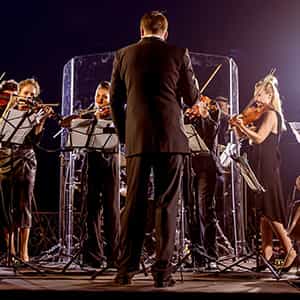

The Sources of Polyphony Tickets
No Buyer Fees on The Sources of Polyphony Tickets and Up to 30% Off Compared to Competitors. Learn More →
Select Location (e.g, New York)
Events Nearby
Frequently Asked Questions About The Sources of Polyphony Tickets and Events
What types of performances are featured in The Sources of Polyphony?
The Sources of Polyphony typically showcases a variety of musical performances, including choral works, instrumental pieces, and experimental compositions that explore the concept of polyphony in depth.
Who are the artists or ensembles involved in The Sources of Polyphony?
The event often features a range of artists, including renowned choirs, contemporary music ensembles, and soloists known for their expertise in polyphonic music.
What is the historical significance of polyphony in music?
Polyphony has played a crucial role in the evolution of Western music, particularly during the Renaissance and Baroque periods, influencing the development of harmony and counterpoint.
What can attendees expect from the experience of The Sources of Polyphony?
Attendees can expect an immersive experience that includes not only performances but also discussions, workshops, and educational sessions that delve into the intricacies of polyphonic music.
How does The Sources of Polyphony promote contemporary composers?
The event often includes works by contemporary composers, giving them a platform to showcase their contributions to the field of polyphony and encouraging the exploration of new musical ideas.
What role do educational workshops play in The Sources of Polyphony?
Educational workshops are a key component, providing participants with hands-on experiences in singing, arranging, and composing polyphonic music, fostering a deeper understanding of the art form.
How does The Sources of Polyphony engage with the local community?
The event frequently collaborates with local musicians, schools, and community organizations to promote awareness and appreciation of polyphonic music within the community.
What are some common themes explored in polyphonic music at The Sources of Polyphony?
Common themes include the interplay of voices, the relationship between text and music, and the cultural significance of polyphony across different musical traditions and historical contexts.
How is the repertoire chosen for The Sources of Polyphony?
The repertoire is typically curated by music directors and guest artists, focusing on a blend of classical works, modern compositions, and pieces that highlight the diversity of polyphonic styles.
In what ways does The Sources of Polyphony contribute to the preservation of musical traditions?
By featuring historical works and contemporary interpretations, The Sources of Polyphony helps preserve musical traditions while also encouraging innovation and new interpretations in the realm of polyphony.

